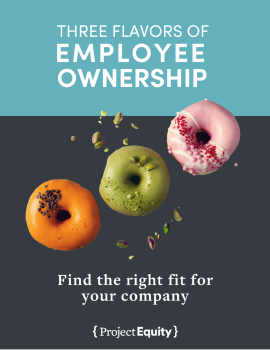A worker cooperative is a company owned and controlled by—and for the benefit of—the people who work there. The Board of Directors comprises a majority of employee-owners who are elected by the full membership on a one-person, one-vote basis, and net profits are shared, based on a formula designed to suit the company.
Worker coops have lower setup and ongoing administration costs and may qualify for some tax benefits. For example, in some circumstances, the seller can be eligible for lifetime deferral of capital gains tax, and the profit that is paid out as patronage is tax-deductible to the worker cooperative business.


